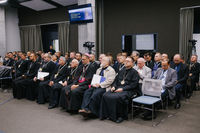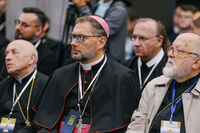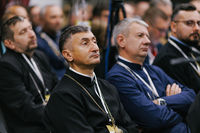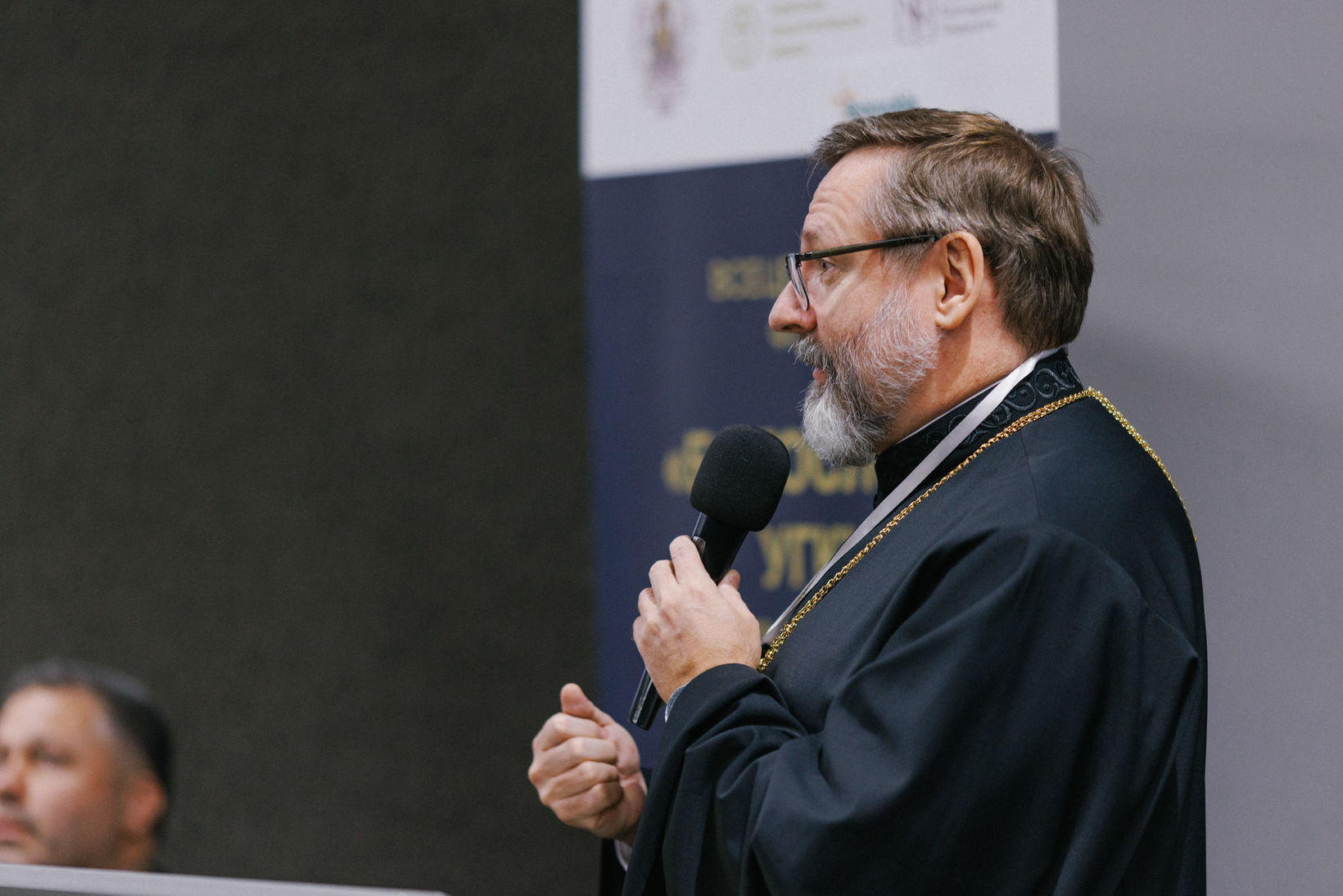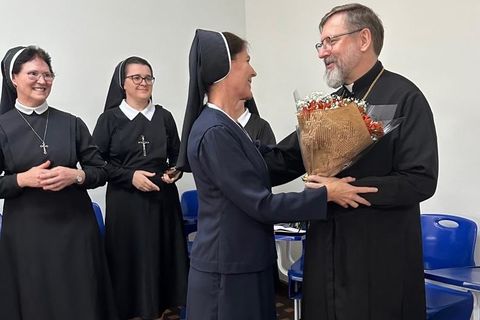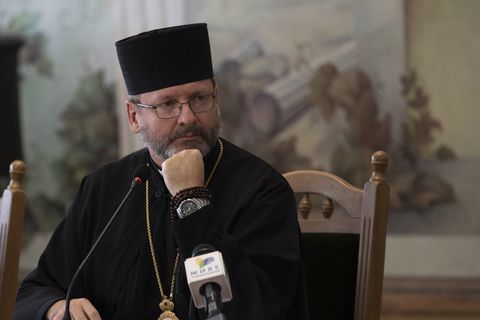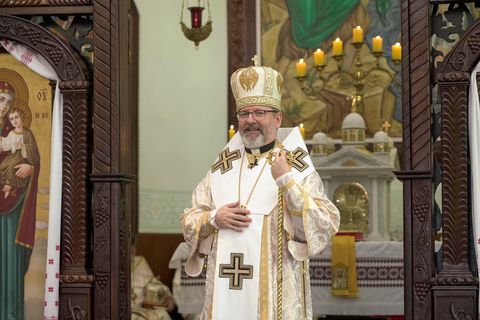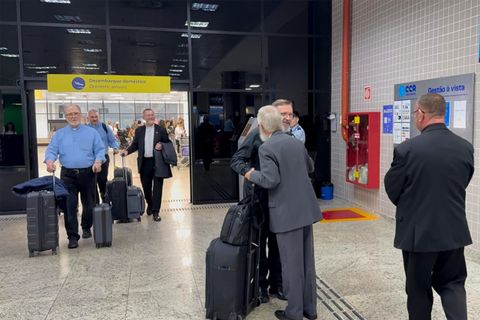“We have matured as theologians: the time has come to think about the pomisna (proper) Church of Kyiv,”— Head of the UGCC to participants of the theological forum
On September 26, with the blessing of the Synod of Bishops, a two-day All-Church Forum entitled “The Theology of the Ukrainian Greek Catholic Church in the 21 st Century: Signs of the Times and Hope” commenced at the Ukrainian Catholic University in Lviv. Its goal is to bring together theologians from all eparchies and UGCC educational institutions in Ukraine and abroad to reflect on contemporary challenges and seek new ways to develop theological science and education.
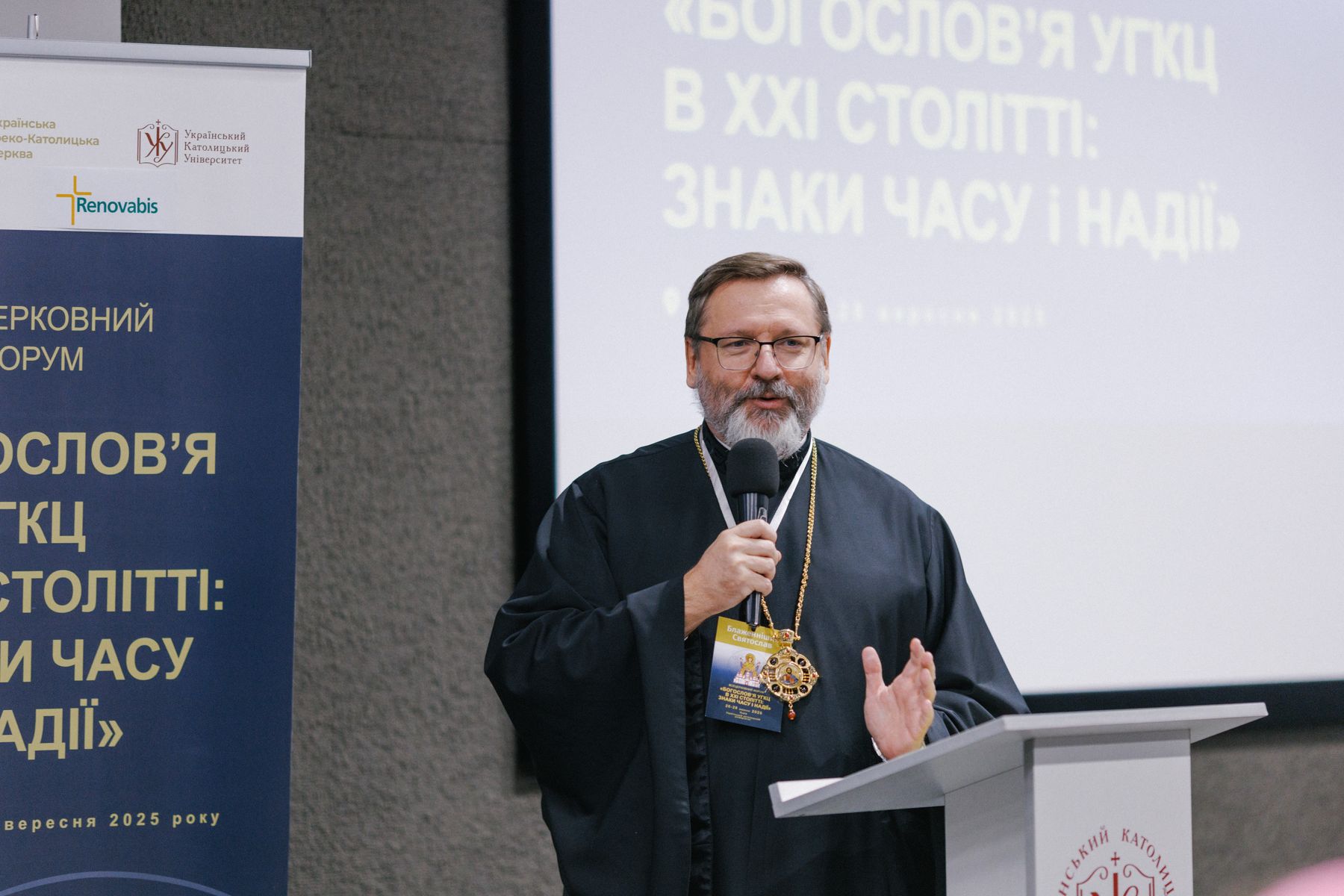
The first day of the forum began with the Hierarchical Divine Liturgy, led by His Beatitude Sviatoslav, Father and Head of the Ukrainian Greek Catholic Church. Afterwards, the participants were greeted by Bishop Yaroslav Pryriz, head of the Theological Department of the UGCC, Archbishop Visvaldas Kulbokas, Apostolic Nuncio, Taras Dobko, rector of the Ukrainian Catholic University, and Fr. Yuriy Shchurko, dean of the Philosophy and Theology Faculty.
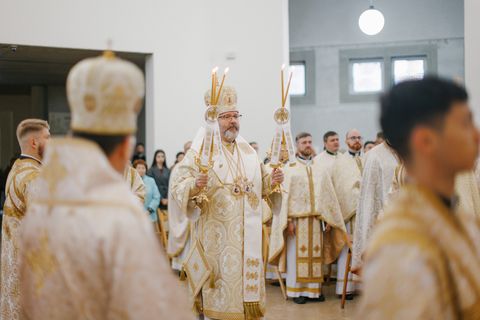 Read also:
Read also:
“True Theology Begins with Love for Your Church”: All-Church Forum of Theologians of the Ukrainian Greek Catholic Church Commences in Lviv
In his address, His Beatitude Sviatoslav emphasized that our Church has educated entire generations of priests who have earned academic degrees: “After coming out of the underground, our bishops had nothing. And when they were asked what they needed, they replied that they needed scholarships for seminarians. This is our Church’s culture of investing in the education and formation of its clergy and laity.”
Therefore, His Beatitude Sviatoslav called on theologians to cherish this contribution. At the same time, we should be grateful to the Apostolic See and our benefactors thanks to whom dozens of students each year study at the most prestigious Catholic universities worldwide: “We must give back to our Church all that has been invested in us. We have no right to bury this gift, but we must develop and multiply it. Then, as the Apostolic Nuncio said, our theology—this fruit—will have value in God’s eyes.”
The Head of the UGCC focused his address on three aspects: what is the gift of theology—what makes us theologians and what does it bind us to? What does the theology of the UGCC mean in the 21 st century? What signs of the times and hope are we called to read today?
“We did not just obtain diplomas. Your mother Church has made you part of her mens Ecclesiae — the mind of the Church. This is more than just an educational document. It is a certain rank that enables us to think together with the Church, to be participants in the communal mindset as the Body of Christ. We have received a great gift, which is a calling, a task, and a responsibility—to live and think together with the Church of Christ,” emphasized the Patriarch.
He also pointed out that in a culture of extreme individualism, it is very easy to fall out of living communion with God within the fellowship of our Church. Therefore, a great tragedy for theology in the Universal Church today is its separation from the living experience of communion with God and the life of faith.
“The Church needs you, colleagues. It needs true theology and life in the true Body of Christ’s Church. We have grown up, and it is time to return home… Today, the whole world’s attention is fixated on us, on our Church. We, theologians, will be worthwhile to the world only when we become the voice of the wounded Ukrainian people. Our experience of God in wartime differs from the experience of knowing God in other pomisna (proper) Churches. We must seek God where He is present today—in the existential experience of pain, in the suffering of God in the body of our Church, our people.”
The Head of the Church then emphasized the importance of developing an academic theological environment, in particular reviving the journal Theology: “We need a ‘testing ground’ for theology, where we will have the courage to write articles, grow, develop, and create.”
At the end, His Beatitude Sviatoslav read an excerpt from an essay written by soldier Artur Dron, who, as a Christian warrior, reflects on what is happening on the front lines: “I caught myself thinking that this is the theology of our wounded people.”
When a priest puts on camouflage, instead of a machine gun takes up an old, worn-out Bible, and goes under fire to pray with those who want to pray, it speaks more about the Church than the Popes of Rome or the Patriarchs of Moscow.
When a man on the verge of a breakdown receives a letter with a child’s drawing and wipes away his tears, there is so much of God in him that it is impossible to comprehend. Yes, we believe that the Lord can do anything and loves everyone, but He has not yet stopped all this horror in a second. Why? I also want to hear the answer. Someday I will definitely ask Him. Why didn’t He stop the war Himself, if He is so omnipotent? I will ask a lot of troubling questions. But I will definitely not ask where He was. Where was God during the war? That’s what I know. I saw and felt it. He was with us in every trench and under every shelling. Our trench Lord. Shelled with us, fatigued with us.
Sometimes it becomes so unbearably difficult. That’s just how it is. And then suddenly the thought strikes me that I am in the most right place on the entire planet. For all of created time and space. I am meant to be only here right now. What a wonderful experience!
(“The Lord in the Trenches”, Artur Dron).After reading these lines, the Head of the UGCC wished the forum participants to maintain the level of theology that we hear from an ordinary 24-year-old guy: “I wish you to have the same feeling of being in the right place. Your Church needs you, your theological reflections, because these are signs of the times and hope — for Ukraine and from Ukraine for the world.”
The All-Church Forum “The Theology of the Ukrainian Greek Catholic Church in the 21 st Century: Signs of the Times and Hope” will last two days in Lviv. At the end of the forum, a resolution is expected to be adopted, a sustainable platform for lively theological dialogue will be created, and a collection of materials is expected to be published.
The UGCC Department for InformationPhoto: UCU Press Center
